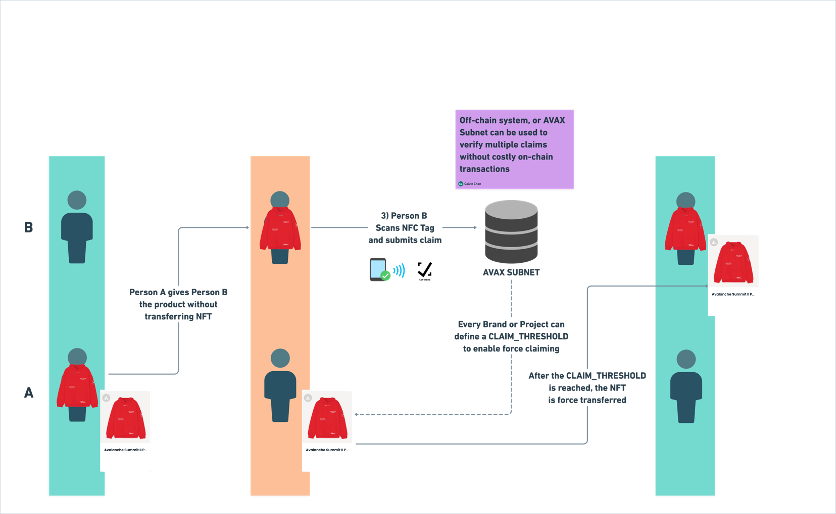🔐Locking Mechanism Options
Legitimate maps each unique digital ID to a token on a decentralized blockchain network. For simplicity and consistency, our documentation will refer to each digital ID as a token.
Transfers
By default, transfers are disabled for locked tokens to prevent tokens from being traded when owners do not have possession of the physical item.
Although we do not recommend changing this, we offer the ability to turn this functionality off. This can only be set by DEFAULT_ADMIN_ROLE
Service Status
When the activation period of a set of phygital products is over, the brand or creator can decide to turn off the locking mechanism and permanently unlock all tokens by setting the service status to false. This allows the token to be freely traded separately from the physical product without having to unlock.
Each contract managed by Legitimate contains a service status flag. When the service is active, the locking mechanism of the protocol will work as intended. When service is inactive, two things will happen:
getTokenLock()andlocked()will always returnfalseTokens will no longer auto-lock after transfer
Whether the service status is active or inactive is set here. This can only be set/changed by SERVICE_STATUS_ROLE
Token Recovery
Legitimate can also define token recovery users to help brands reconcile ownership when a phygital product exchanges hands without the underlying token being transferred first. This is done via the TOKEN_RECOVERY_ROLE.
By default, Legitimate operates an off-chain token recovery mechanism that can help brands reset the ownership of their phygital products.
This role can also be granted to a smart contract that operates a decentralized consensus mechanism in conjunction with the ability to verify the NFC digital signatures. As such, this contract can request that the customer scan the unit a set number of times before force recovery is performed.

Last updated
Was this helpful?

